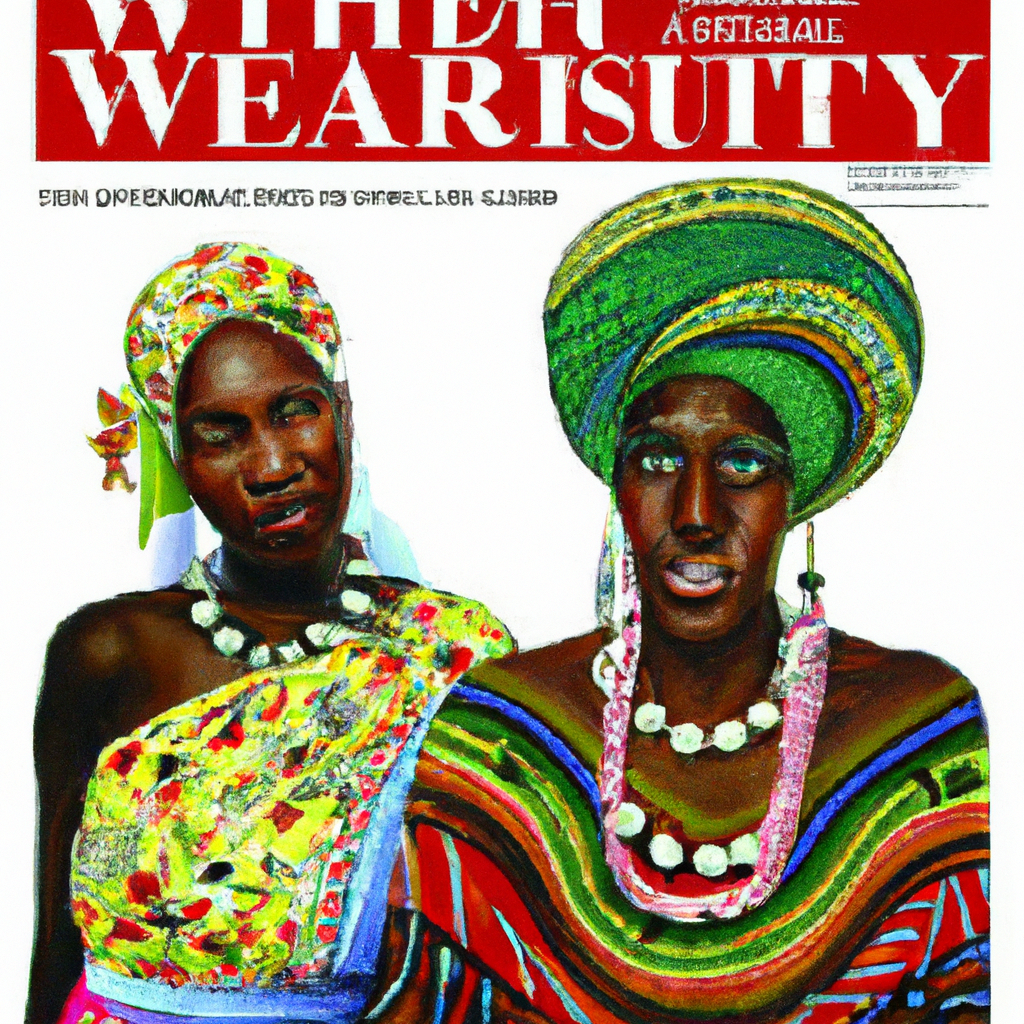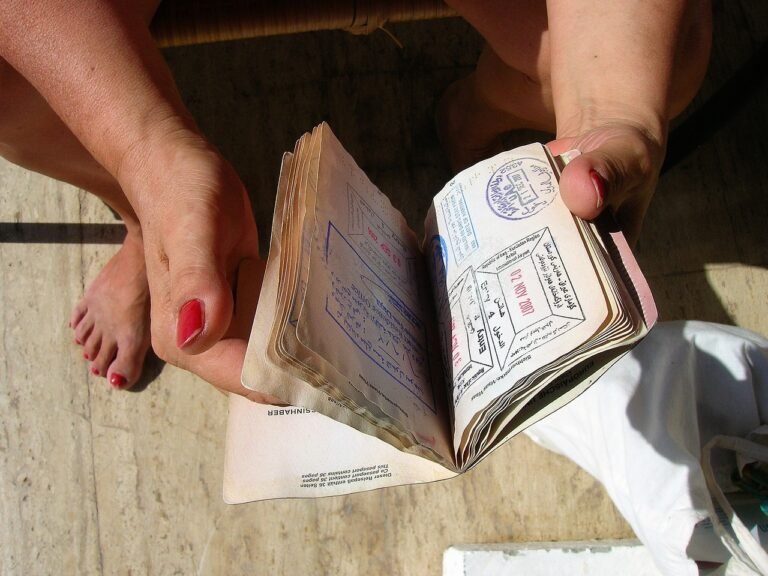How Did Kenya Handle The Challenges Of Ethnic Diversity And Multiculturalism?
In the beautiful and diverse country of Kenya, the challenges of ethnic diversity and multiculturalism have been met with grace and resilience. As the nation embraced its rich tapestry of different ethnicities and cultures, Kenya found ways to foster unity and harmony among its people. By recognizing the importance of inclusivity, promoting cultural awareness, and implementing policies that encourage acceptance, Kenya has become a shining example of successful management of ethnic diversity and multiculturalism.

Historical Background of Ethnic Diversity in Kenya
Colonial Era
During the colonial era, Kenya was under British rule, and the British colonialists implemented policies that had a significant impact on ethnic diversity. They divided the country into different administrative regions, grouping diverse ethnic communities together. This artificial division often created tensions and conflicts among the various ethnic groups. Moreover, the colonial administration favored some ethnic communities over others, leading to inequalities and marginalization.
Post-Independence
After gaining independence in 1963, Kenya faced the challenge of managing its diverse ethnic population. The post-independence governments emphasized the importance of national unity and sought to integrate different ethnic communities into a cohesive nation. However, addressing the historical grievances and inequalities that existed among the ethnic groups proved to be a complex task.
Introduction of Ethnic Diversity and Multiculturalism Policies
Constitutional Recognition of Ethnic Diversity
The 2010 Constitution of Kenya recognized and embraced the country’s ethnic diversity. It introduced a devolved system of government, allowing for regional representation and decision-making. This recognition of ethnic diversity in the constitution aimed to involve different ethnic communities in the governance of the country and give them a voice.
Devolution and Ethnic Representation
Devolution played a crucial role in addressing the challenges of ethnic diversity in Kenya. It introduced a system where different ethnic communities have elected representatives at both the national and county levels. This system ensures that ethnic groups are included in decision-making processes and allows for the equitable distribution of resources and opportunities.
Challenges Faced by Kenya in Managing Ethnic Diversity
Tribalism and Politics
One of the significant challenges faced by Kenya in managing ethnic diversity is tribalism and its influence on politics. Politicians often exploit ethnic divisions to gain support, leading to heightened inter-ethnic tensions. This tribal-based politics hinders national cohesion and poses a significant challenge to building an inclusive and united Kenya.
Ethnic Tensions and Conflict
Historical grievances and disparities between ethnic communities can result in ethnic tensions and conflicts. Land disputes, resource allocation issues, and competition for political power often escalate into violence and conflicts between different ethnic groups. Kenya has faced several instances of ethnic-based violence in its history, such as the post-election violence in 2007-2008.
Inequalities and Marginalization
Ethnic diversity can also lead to inequalities and marginalization of certain ethnic communities. Some ethnic groups may face discrimination in access to services, education, employment, and infrastructure development. Addressing these disparities and promoting equal opportunities for all ethnic groups is essential for achieving social cohesion and a harmonious society.

Ethnic Diversity and National Cohesion Initiatives
National Cohesion and Integration Commission
The National Cohesion and Integration Commission (NCIC) was established in Kenya to promote national cohesion, integration, and peaceful coexistence among ethnic communities. The commission works towards addressing issues related to hate speech, discrimination, and incitement to violence. Through dialogue, advocacy, and public education programs, the NCIC plays a pivotal role in fostering unity and understanding among different ethnic groups.
Huduma Namba: Digital ID System
Introduced in 2019, the Huduma Namba is a unique identification number that each Kenyan citizen receives. This digital ID system aims to streamline government service delivery and eliminate duplication, but it also contributes to national cohesion and inclusivity. By recording individuals’ ethnic backgrounds, the government can better understand and address the needs of different ethnic communities.
Legal Framework for Addressing Ethnic Diversity and Multiculturalism
The Constitution of Kenya
The Constitution of Kenya provides a comprehensive legal framework for addressing ethnic diversity and promoting multiculturalism. It guarantees equal rights and freedoms for all individuals, regardless of their ethnic background. The constitution also recognizes and protects cultural, linguistic, and religious diversity, ensuring that no ethnic group is marginalized or excluded.
The National Equality and Ethnic Relations Commission Act
The National Equality and Ethnic Relations Commission Act created a commission responsible for promoting equality, peace, and harmony among different ethnic groups in Kenya. The commission monitors and investigates cases of discrimination, and it works to develop strategies to promote equal opportunities and peaceful coexistence. This act strengthens the legal mechanisms in place to address ethnic diversity and multiculturalism.
Promotion of Cultural Diversity and Inclusion
The Kenya Cultural Centre
The Kenya Cultural Centre plays a vital role in promoting cultural diversity and inclusivity. It offers a platform for different ethnic communities to showcase their cultural heritage through music, dance, art, and other artistic expressions. This center fosters appreciation and understanding of Kenya’s diverse cultural identity, facilitating greater unity and a sense of pride among all ethnic groups.
National Museums of Kenya
The National Museums of Kenya serve as repositories of Kenya’s rich cultural history. They preserve and exhibit artifacts and artworks that represent the diversity of ethnic communities in the country. The museums also host educational programs and exhibitions to promote cultural understanding and awareness. Through these initiatives, the National Museums contribute to the celebration of ethnic diversity and the preservation of Kenya’s multicultural heritage.
Education and Social Integration
Promotion of Multilingual Education
Kenya’s education system promotes multilingual education, recognizing the importance of preserving and promoting different ethnic languages. Bilingual or multilingual education programs enable children to learn in both their ethnic language and the official national languages, fostering inclusivity and cultural pride. This approach acknowledges the linguistic diversity of Kenya’s ethnic communities and ensures their languages are not overlooked or marginalized.
Integration Programs and Scholarships
To promote social integration among different ethnic groups, Kenya has implemented various integration programs and scholarships. These initiatives aim to bring together students from diverse ethnic backgrounds, fostering cross-cultural understanding and friendships. By breaking down ethnic barriers from a young age, Kenya hopes to create a future generation that values diversity and works towards national unity.
Economic Empowerment and Ethnic Diversity
Affirmative Action Programs
Kenya has implemented affirmative action programs to address the economic disparities faced by certain ethnic communities. These programs prioritize the inclusion and empowerment of marginalized groups, ensuring they have equal access to economic opportunities, land, and resources. By promoting economic empowerment, Kenya aims to create a more equitable society that benefits all ethnic communities.
Promotion of Entrepreneurship and Business
The promotion of entrepreneurship and business opportunities is another avenue through which Kenya addresses ethnic diversity. By providing support, training, and resources to individuals from different ethnic backgrounds, the government encourages diverse participation in the economic sector. Entrepreneurship can bridge ethnic divides and promote collaboration among diverse communities towards shared economic growth and development.
Role of Media in Promoting Ethnic Diversity and Multiculturalism
Ethical Reporting and Sensitization
The media plays a crucial role in shaping perceptions and influencing public opinion. Responsible and ethical reporting is essential in promoting ethnic diversity and multiculturalism. Media outlets in Kenya have a responsibility to report accurately and objectively on ethnic issues, avoiding sensationalism and stereotypes. Sensitization campaigns and awareness programs can also be implemented to educate both media practitioners and the public about the importance of embracing diversity and unity.
Local Language Programming
Embracing ethnic diversity also includes promoting local languages through media. Encouraging the production of local language programming in television, radio, and online platforms allows different ethnic communities to have a voice in the media landscape. This inclusive approach helps preserve cultural heritage, strengthens ethnic identity, and creates a sense of belonging for all ethnic groups.
International Cooperation for Managing Ethnic Diversity
Partnerships with International Organizations
Kenya actively engages in partnerships with international organizations to address the challenges of ethnic diversity and multiculturalism. Collaborating with entities such as the United Nations and regional bodies allows Kenya to share best practices, learn from other countries’ experiences, and access resources and expertise. This international cooperation strengthens Kenya’s efforts in managing and celebrating its ethnic diversity.
Exchange Programs and Cultural Diplomacy
Exchange programs and cultural diplomacy initiatives play a vital role in promoting cross-cultural understanding and appreciation. Through programs that facilitate cultural exchanges, Kenya can showcase its diverse ethnic heritage to the international community and learn from other cultures. Such initiatives foster global awareness, break stereotypes, and build bridges between different ethnic communities worldwide.
In conclusion, Kenya has made significant strides in addressing the challenges of ethnic diversity and multiculturalism. Through constitutional recognition, legal frameworks, cultural promotion, education, economic empowerment, media engagement, and international cooperation, Kenya is on a path towards creating an inclusive society that celebrates its ethnic diversity while promoting national unity. Despite the challenges that remain, the country’s commitment to managing ethnic diversity sets an encouraging example for other nations facing similar issues.







